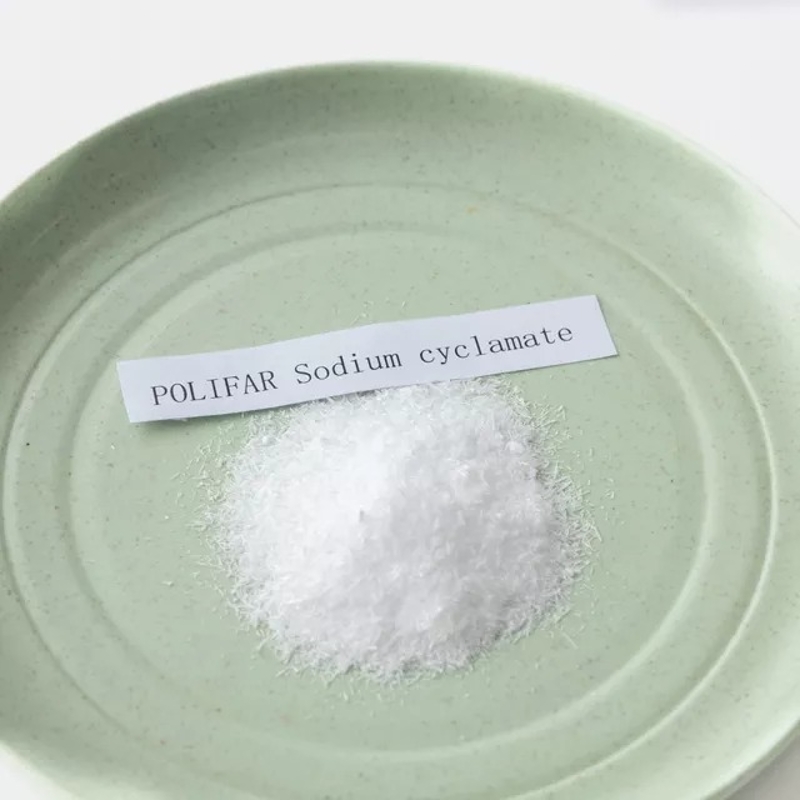-
Categories
-
Pharmaceutical Intermediates
-
Active Pharmaceutical Ingredients
-
Food Additives
- Industrial Coatings
- Agrochemicals
- Dyes and Pigments
- Surfactant
- Flavors and Fragrances
- Chemical Reagents
- Catalyst and Auxiliary
- Natural Products
- Inorganic Chemistry
-
Organic Chemistry
-
Biochemical Engineering
- Analytical Chemistry
- Cosmetic Ingredient
-
Pharmaceutical Intermediates
Promotion
ECHEMI Mall
Wholesale
Weekly Price
Exhibition
News
-
Trade Service
to both the Indian domestic and export markets.
This situation will likely cut the performance
of Indian agrochemical and fertilizer companies in the third quarter of December 2022.
However, companies seem to be recovering slightly through price
adjustments.
The strong performance of the Rabi (winter planting) season (4% year-on-year growth in planted area) and higher-yielding crop prices also provide some support for the good vision for 2023
.
adjustments.
The strong performance of the Rabi (winter planting) season (4% year-on-year growth in planted area) and higher-yielding crop prices also provide some support for the good vision for 2023
.
Experts say India's domestic industry should be able to achieve mid-to-high-single-digit growth
in the second half of FY23 (and for the rest of FY23).
Himanshu Binani, research analyst at Prabhudas Lilladher Pvt Ltd, said: "Due to the impact of price growth, the growth of India's domestic agrochemical and fertilizer industry in 2023 may increase by about 5~8% compared to the same period last year, but the specific production is expected to be affected
in the case of unclear demand.
″
in the second half of FY23 (and for the rest of FY23).
Himanshu Binani, research analyst at Prabhudas Lilladher Pvt Ltd, said: "Due to the impact of price growth, the growth of India's domestic agrochemical and fertilizer industry in 2023 may increase by about 5~8% compared to the same period last year, but the specific production is expected to be affected
in the case of unclear demand.
″
Single-business players in India face challenges
Industry experts believe that domestic single-business players face more challenges, and they may encounter strong headwinds
in terms of revenue and profit growth.
in terms of revenue and profit growth.
The challenges facing the domestic market are compounded
by the increase in inventory reserves due to a high base last year, combined with lower raw material costs and higher returns on sales, particularly pesticides, which in turn may put pressure on margins in the short term.
″
by the increase in inventory reserves due to a high base last year, combined with lower raw material costs and higher returns on sales, particularly pesticides, which in turn may put pressure on margins in the short term.
″
Pesticide stocks have been rising after
the kharif season, as demand has been severely affected by erratic rainfall.
Pesticides sprayed on crops are washed away by rain, so farmers often do not spray pesticides when it rains, which leads to crop damage, low-level pests and pesticide spray loss
.
Kotak Institutional Equities' channel checks indicate that the adjustment in vegetable and fruit prices has led to weak demand in this segment during the Rabi (winter planting) season
.
the kharif season, as demand has been severely affected by erratic rainfall.
Pesticides sprayed on crops are washed away by rain, so farmers often do not spray pesticides when it rains, which leads to crop damage, low-level pests and pesticide spray loss
.
Kotak Institutional Equities' channel checks indicate that the adjustment in vegetable and fruit prices has led to weak demand in this segment during the Rabi (winter planting) season
.
As a result, the agrochemical industry is at risk
of sales returns from channel partners.
Given that last year's rainy season was also affected by unseasonal rainfall, some stocks may have been on hold for the past two years, and some unsold products may be withdrawn
when they approach their expiry date.
of sales returns from channel partners.
Given that last year's rainy season was also affected by unseasonal rainfall, some stocks may have been on hold for the past two years, and some unsold products may be withdrawn
when they approach their expiry date.
Weak international demand and slumped exports
There was also turbulence
on the demand side of export markets last year due to customer surge in inventories last year amid supply chain uncertainties and lower-than-expected demand in Europe and the United States.
India's agrochemical exports fell 17% year-on-year in October 2022, with comments and/or data from several companies indicating weak demand
.
This, in turn, has reportedly led to high channel inventory
in certain important target regions, including Europe, North America, and Latin America.
As a result, orders for a large number of products from Indian suppliers appear to have slowed, with companies such as UPL and Bayer reporting year-on-year sales declines
in early September.
on the demand side of export markets last year due to customer surge in inventories last year amid supply chain uncertainties and lower-than-expected demand in Europe and the United States.
India's agrochemical exports fell 17% year-on-year in October 2022, with comments and/or data from several companies indicating weak demand
.
This, in turn, has reportedly led to high channel inventory
in certain important target regions, including Europe, North America, and Latin America.
As a result, orders for a large number of products from Indian suppliers appear to have slowed, with companies such as UPL and Bayer reporting year-on-year sales declines
in early September.
In the face of the continuous adjustment of agrochemical prices, buyers are certainly not willing to hoard further
.
Raw material prices for agrochemicals and fertilizers have been on a downward trend over the past few months, mainly due to lower demand due to adverse weather conditions in key regions such as the United States and Europe, and possibly due to favorable raw material supply conditions following the easing of coronavirus-related lockdowns in China
.
.
Raw material prices for agrochemicals and fertilizers have been on a downward trend over the past few months, mainly due to lower demand due to adverse weather conditions in key regions such as the United States and Europe, and possibly due to favorable raw material supply conditions following the easing of coronavirus-related lockdowns in China
.
"After the rapid spread of the new crown epidemic, China may face a new lockdown
.
This could disrupt supply chains and drive up agrochemical prices
.
However, this situation is not clear and agrochemical prices continue to fall," Damania added
.
.
This could disrupt supply chains and drive up agrochemical prices
.
However, this situation is not clear and agrochemical prices continue to fall," Damania added
.
Positive crop outlook for 2023 The cost of agrochemical products may be passed on to farmers
India's ongoing winter planting season this year is gaining momentum (up 4% y-o-y according to industry data), with significant crop acreage, with positive trends
across all major crops such as wheat, rice, maize and pulses.
Therefore, there is optimism
in India for 2023.
across all major crops such as wheat, rice, maize and pulses.
Therefore, there is optimism
in India for 2023.
India's 143 reservoirs hold 81%
of their total capacity, according to the data.
Reservoir water levels rose 4% year-on-year and 19%
compared to the average of the past 10 years.
Higher reservoir levels and better soil moisture help increase crop acreage
for the current planting season.
of their total capacity, according to the data.
Reservoir water levels rose 4% year-on-year and 19%
compared to the average of the past 10 years.
Higher reservoir levels and better soil moisture help increase crop acreage
for the current planting season.
However, Binani also said that "although the warm winter has not had any significant impact on existing crops so far, if it continues, it will have an impact on future crop yields (which may occur between January and March)".
India's agrochemical industry adopted price increases in the first half of FY23, raw material prices adjusted sharply, and most products in the domestic market were at high levels
.
"As long as crop prices remain profitable, the rising costs can be passed on to farmers
," Binani said.
While earnings in the December quarter may be affected, the Indian sector was able to maintain mid-to-high-single-digit growth
in the first half of FY23 and FY23 with the help of these supportive factors.
″
.
"As long as crop prices remain profitable, the rising costs can be passed on to farmers
," Binani said.
While earnings in the December quarter may be affected, the Indian sector was able to maintain mid-to-high-single-digit growth
in the first half of FY23 and FY23 with the help of these supportive factors.
″







